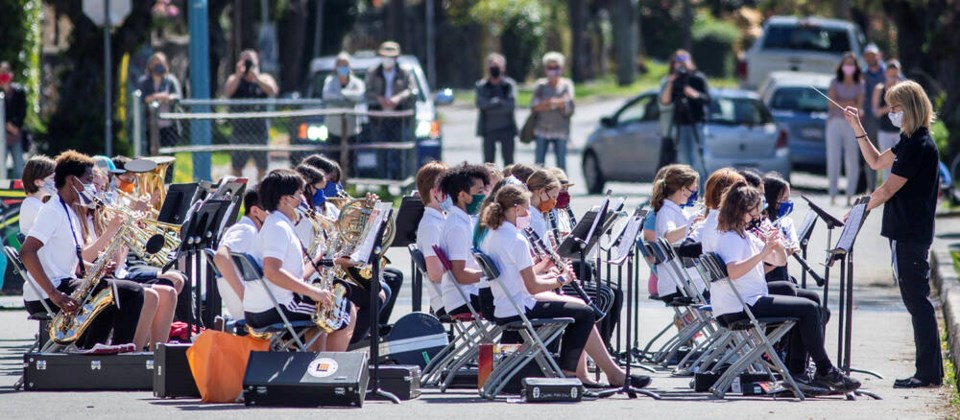As the Greater Victoria School District looks to cut costs to deal with a $4-million deficit, it’s considering grouping elementary school stringed-instrument courses in middle school “hubs.”
Options include five to 10 middle schools hosting classes, with the five-hub option costing $91,675 annually, 10 hubs $183,350 and the status quo — where strings programs take place in elementary schools — $258,485.
“Although one of the options for each music program is to leave them as they are, I don’t know how realistic that is,” said Paula Marchese, chair of the group Advocacy for Music in Schools and a budget committee member.
School music programs have wound up on the chopping block in past years as the board tried to balance its budget, prompting rallies by students and parents attempting to save them.
Last year, the district axed the elementary-strings program, although it got a one-year respite through donations, including a $125,000 donation from the Patrick McNally Foundation.
“It’s just a little bit triggering because of what music teachers and students and families have gone through in the past two and a half years,” said Cindy Romphf, a music teacher who serves as the Greater Victoria Teachers’ Association second vice-president and past-president of the Greater Victoria Music Educators Association.
“I’m hopeful with our new trustees, this new school board, that they are there to support students and student programs.”
Music options are expected to be a hot topic at a public budget meeting Tuesday hosted by the Greater Victoria School District, as it looks for ways to balance its 2023-24 budget. School districts are not allowed to run deficit budgets, and must file their budget documents each year by June 30.
“I’m hoping a lot of parents will come out and advocate for music and a lot of the things that are on the table,” said Marchese, noting a number of the trustees on the board campaigned on protecting student programs, including music, in last October’s elections.
The registration period for the Tuesday meeting has ended, but community feedback is being accepted until March 17 through submissions to [email protected].
District secretary-treasurer Katrina Stride said there are four options for elementary strings and five for middle-school music.
Among the middle-school options is basing the opportunity for offering music on school size — ranging from a teacher being available on a halftime basis for a school of 300 or less, to a .9 full-time equivalent music teacher at a school of 600 or more.
That would cost $898,408, as compared to $1,132,251 for the status quo.
Stride said Tuesday’s meeting will begin with presentations before participants sit down for discussions at tables set up around the room.
“We’re just trying to get a sense of what items are a priority for the public, for the community.”
Other items likely to be on the agenda include custodians, youth counsellors and educational assistants, who support the inclusion of all students in classrooms.


